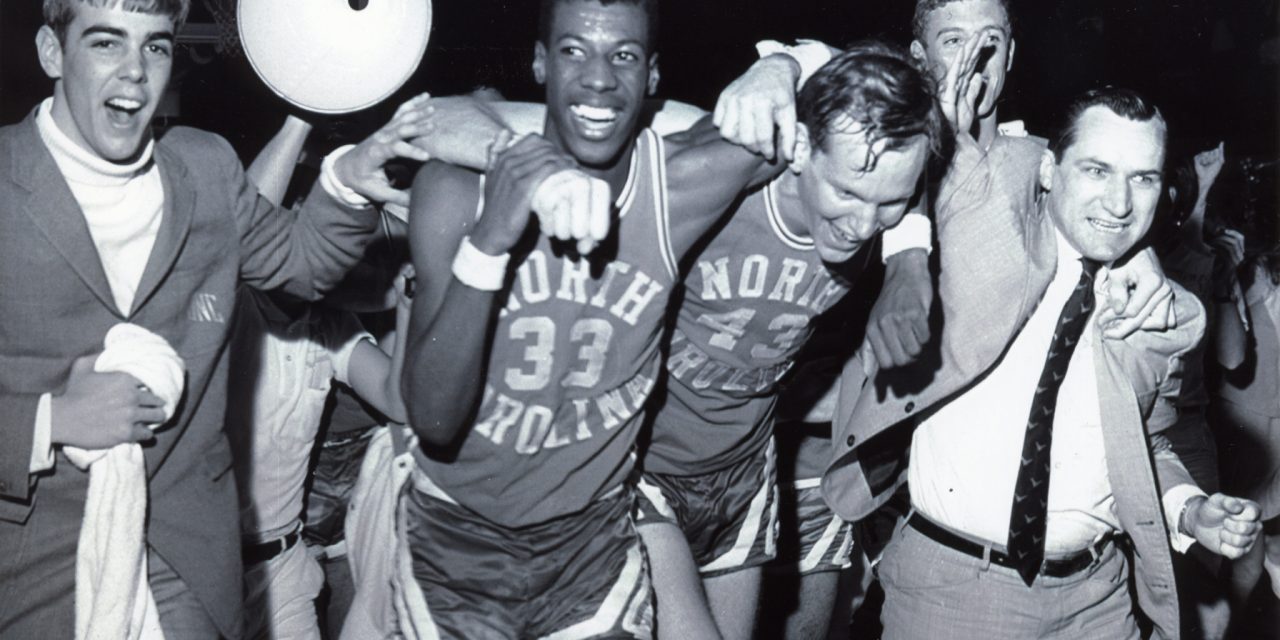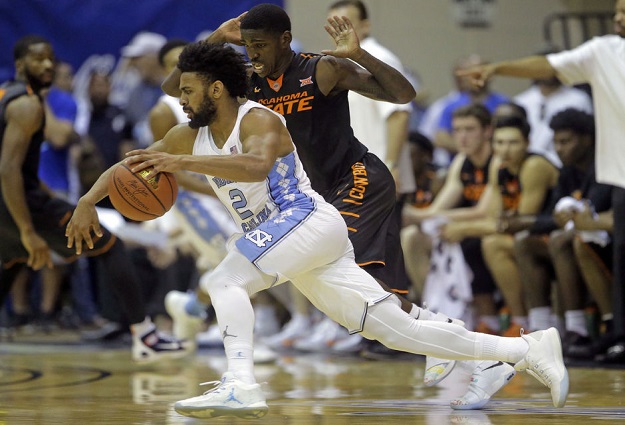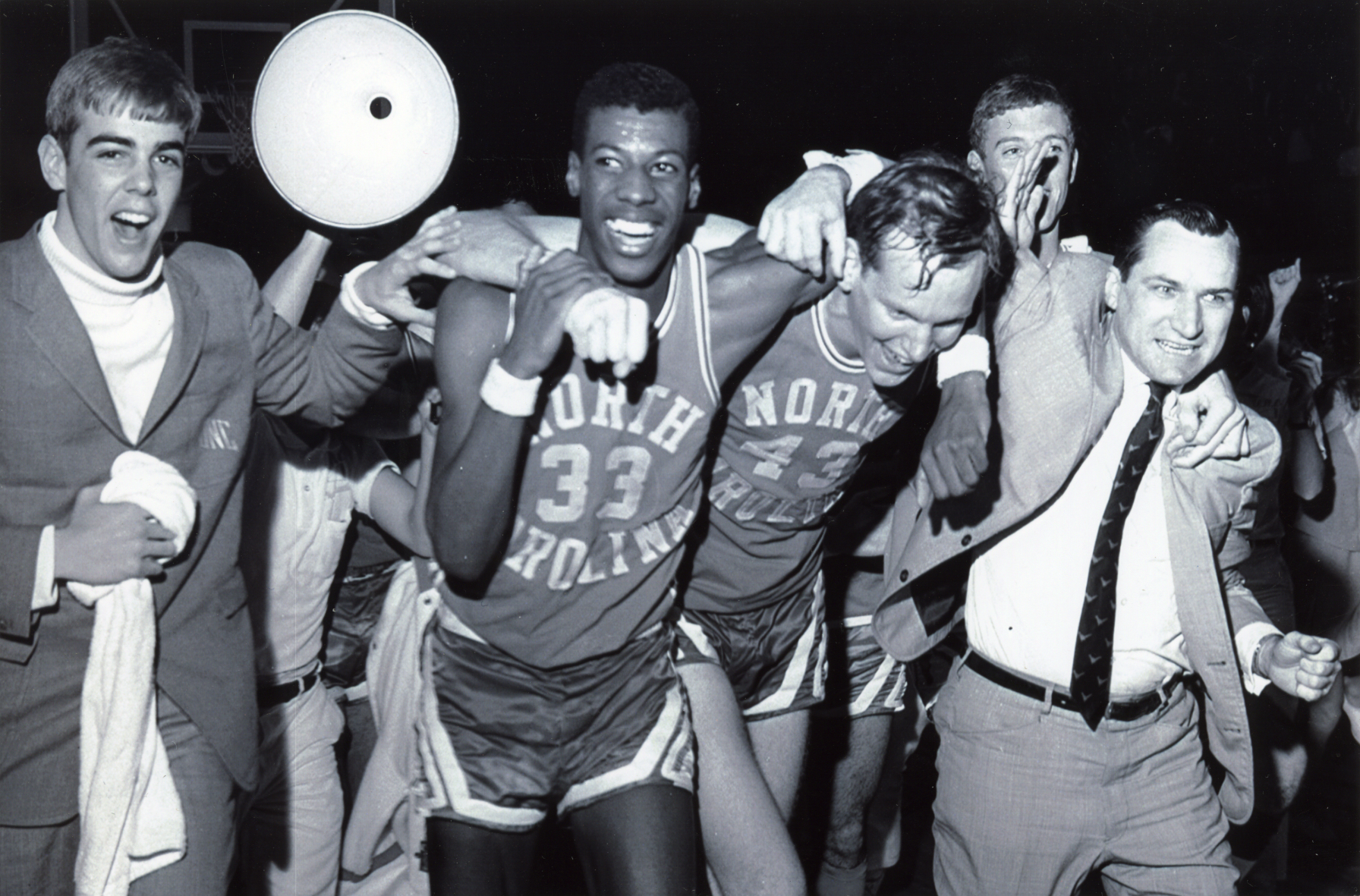Do you grit your teeth when an athlete or performer takes a knee during the National Anthem before a game begins?
We have mixed feelings, don’t we?
Like UNC-Chapel Hill basketball coach Roy Williams, who was angry when he first heard about San Francisco 49ers quarterback Colin Kaepernick’s pre-game protests of police violence against black men.
Then, after talking to members of his team, Williams changed his mind and recognized that Kaepernick was not saying that our country was bad. But there is a specific problem, Williams says, and “I think he is correct.”
Williams’ comments reminded old-timers of an earlier time when another Carolina basketball coach took unpopular stands on racial matters and supported his black players, who were dealing with special challenges because of their race.
Veteran sports journalist Art Chansky tells this story in his new book, “Game Changers: Dean Smith, Charlie Scott, and the Era That Transformed a Southern College Town.”
Chansky’s story begins in 1961 when the now-legendary Dean Smith succeeded Frank McGuire as head basketball coach in Chapel Hill and a junior high school kid in Harlem named Charles Scott was hanging around the playground mostly watching other bigger guys play basketball.
Meanwhile, Chansky writes, “On the surface, Chapel Hill was idyllic, with large colonial homes bordering Franklin Street as it wound up to and through the village.”
However, “Not far beneath the apparently tranquil surface, Chapel Hill was in turmoil.”
The few liberal leaders in town “faced opposition from the long-held convictions of southern segregationists, many of whom were prominent business leaders in the town.”
“It’s hard to imagine Carolina basketball and Chapel Hill if Dean Smith had never come,” writes Chansky.
Meanwhile, in 1963, Scott had made his way to North Carolina to attend high school and play basketball at Laurinburg Institute, an all-black boarding school.
His basketball talents caught the eye of Davidson College coach Lefty Driesell, who persuaded Scott to play for him. “Lefty was the first guy to recruit me,” Scott told Chansky. “If there was no Lefty, there would be no Charlie Scott.”
Chansky explains in detail how Smith and the officials at Laurinburg got Scott to change his mind and go to Carolina.
Chansky writes, “It’s good that Charlie Scott wasn’t born three years earlier. Chapel Hill was less ready for him in the early 1960s. Over the course of the decade, it went from a town clearly divided by race to eventually electing (and twice re-electing by overwhelming margins) Howard Lee as the first black mayor in a predominantly white municipality in the South.”
Although the racial climate in Chapel Hill had improved by the time Scott arrived, he was still a black man in a predominantly white world. He was uncomfortable. He and his first-year roommate hardly spoke. For friendships, he traveled to North Carolina Central in Durham.
Coach Smith gave Scott full support, Chansky writes, but “there was no playbook to guide the complicated group dynamics on Carolina’s first integrated team.”
Scott told Chansky he regretted not forming any enduring friendships at UNC. “You did things with other people in college that you had lifelong relationships with,” he said. “I was not able to do that; it was a choice I made and I understand that. It wasn’t an experience I would wish upon my kids.”
Scott said his children had a much better time when they came to Carolina. They obtained what their father had missed. “My son and my daughter had a fantastic experience. They enjoyed everything about Carolina. Shaun goes back now and he sees a friend, that’s great. I didn’t have that opportunity.”
Thanks to Scott and Smith, black students can have even better experiences at Chapel Hill.
Better.
But still not good enough, Smith and Scott would tell us.







Comments on Chapelboro are moderated according to our Community Guidelines